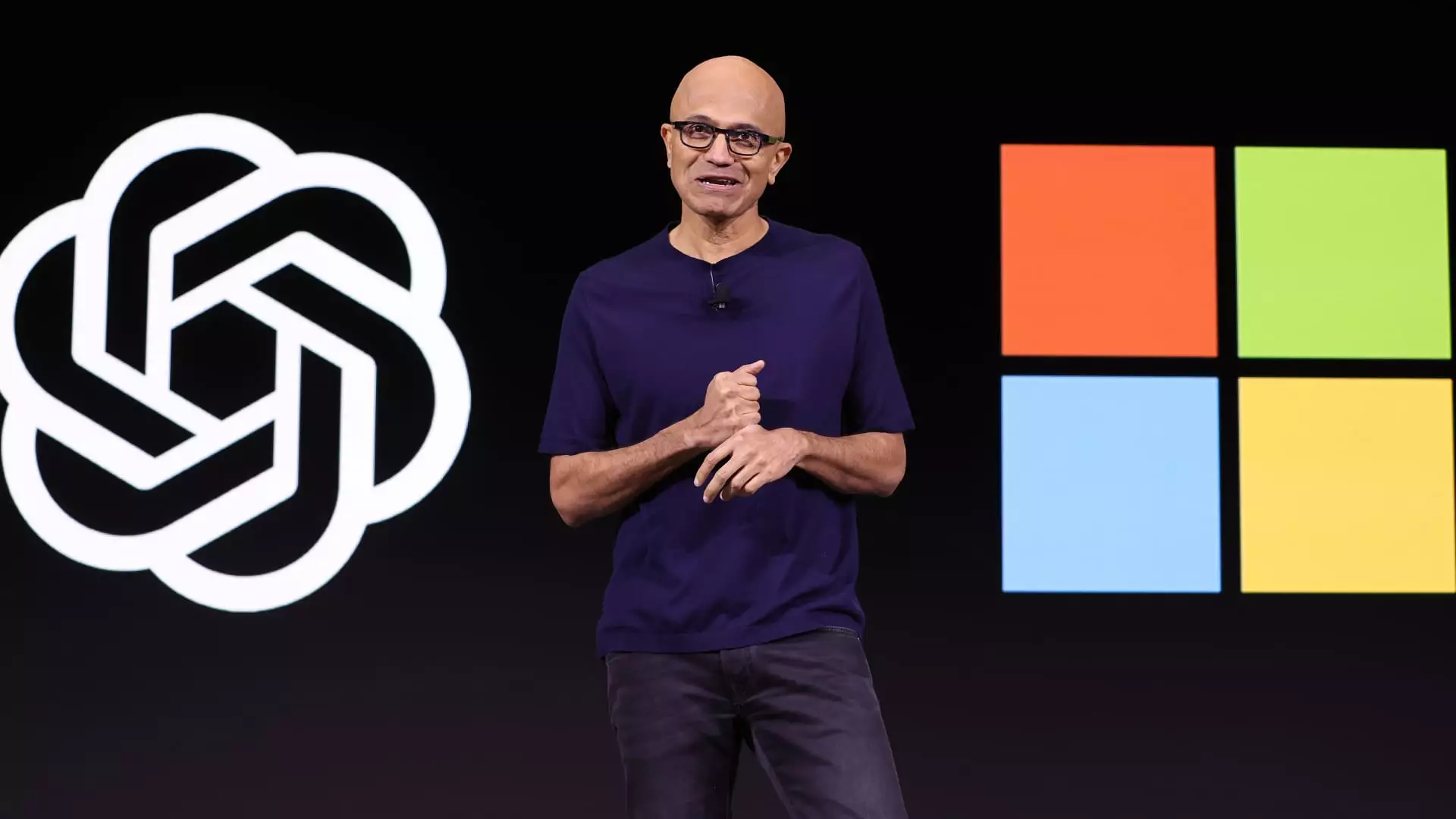Microsoft, a multinational technology company, has made significant investments in OpenAI, a well-known AI startup. However, in an unexpected turn of events, Microsoft temporarily restricted its employees from using OpenAI’s renowned product, ChatGPT, due to security and data concerns. This decision had a considerable impact on the employees who heavily relied on ChatGPT for their work-related tasks.
According to CNBC, Microsoft explained in an internal update that several AI tools, including ChatGPT, were no longer accessible to employees due to security and data worries. A screenshot viewed by CNBC supported this claim, clearly showing that corporate devices could not access ChatGPT. Microsoft, as well as OpenAI, remained silent when approached for comments on this matter. Microsoft emphasized that while ChatGPT has protective measures against misuse, it is still considered a third-party external service, resulting in potential privacy and security risks. The company also extended this concern to other external AI services like Midjourney and Replika.
Initially, Microsoft had also mentioned that it was banning another software called Canva, specifically for design purposes. However, this statement was later removed from the advisory. After some time, Microsoft restored access to ChatGPT, attributing the initial blockage to an unintended mistake during a test of their systems for large language models. Microsoft clarified that they inadvertently activated the endpoint control systems for all employees but rectified the situation promptly. The company encouraged employees and customers to utilize services such as Bing Chat Enterprise and ChatGPT Enterprise, which offer higher levels of privacy and security protections.
Many large companies have previously restricted the use of ChatGPT due to concerns about the potential sharing of confidential data. ChatGPT is an AI language model that can generate human-like responses based on chat messages it receives. With a user base exceeding 100 million, it poses both advantages and risks. Although trained on extensive internet data, the software’s capabilities raise privacy concerns, particularly when handling sensitive information.
Microsoft and OpenAI share a close partnership, with Microsoft investing heavily in OpenAI. In addition to this investment, Microsoft has been actively integrating OpenAI services into their Windows operating system and Office applications, leveraging the power of OpenAI’s language models. Moreover, the two companies recently collaborated at OpenAI’s inaugural developer conference, where Microsoft CEO Satya Nadella joined OpenAI’s Sam Altman on stage. Altman addressed rumors circulating at the time, explicitly stating that there was no intention to block Microsoft 365 in retaliation.
In light of the temporary block on ChatGPT, Microsoft recommended its employees to use Bing Chat, an AI-powered tool created by Microsoft that also relies on OpenAI’s AI models. Bing Chat is considered a safer alternative for users who require AI-generated responses while prioritizing privacy and security. Microsoft’s Azure cloud infrastructure supports both OpenAI’s services and Bing Chat, reinforcing the collaborative relationship between the two companies.
In an interesting development earlier this year, a senior engineer from Microsoft expressed on a forum that employees were permitted to use ChatGPT. However, cautionary advice was provided, urging employees to refrain from entering confidential information while utilizing the software. This indicates that even within the company, there have been ongoing concerns regarding the potential risks associated with using ChatGPT.
Microsoft’s temporary restriction on employee usage of OpenAI’s ChatGPT due to security and data concerns has highlighted the potential vulnerabilities associated with external AI services. While Microsoft quickly rectified the situation and restored access to ChatGPT, the incident emphasized the need for cautious usage and the exploration of alternative services like Bing Chat that offer enhanced privacy and security features. As the partnership between Microsoft and OpenAI continues to evolve, it is crucial for both companies to address and mitigate potential risks associated with AI-powered services to ensure the protection of sensitive information.


Leave a Reply